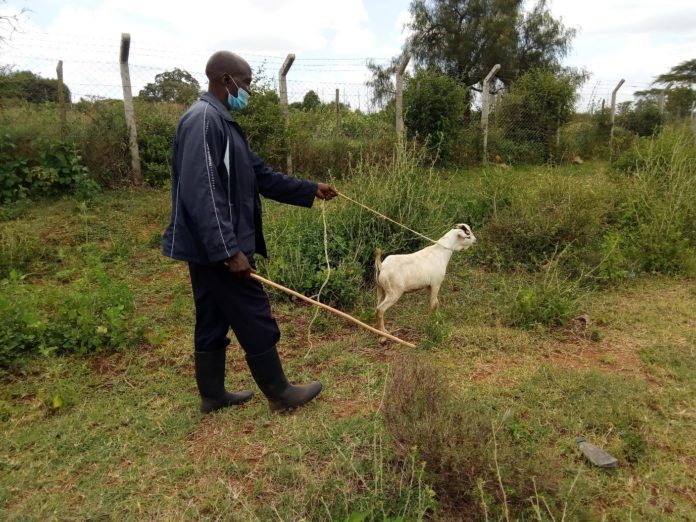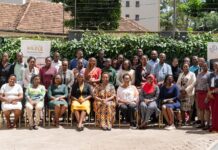By Tebby Otieno
Kajiado, Kenya: For Linet Kereto, a resident of Intinyika village in the same town, one goat introduced her to medical insurance and paid for her initial annual, National Hospital Insurance Fund (NHIF) subscription of KSh.6, 000.
This story is common among most pastoralists in Kajiado county, who cannot afford to pay a paltry KSh.500 per month for medical insurance cover.
The program is dubbed “Mbuzi moja, Afya bora” a Swahili word that means one goat, better health.
In Kajiado, a Kenyan town 78.2Km away from the country’s capital city Nairobi, a goat costs an average of KSh. 2, 500.
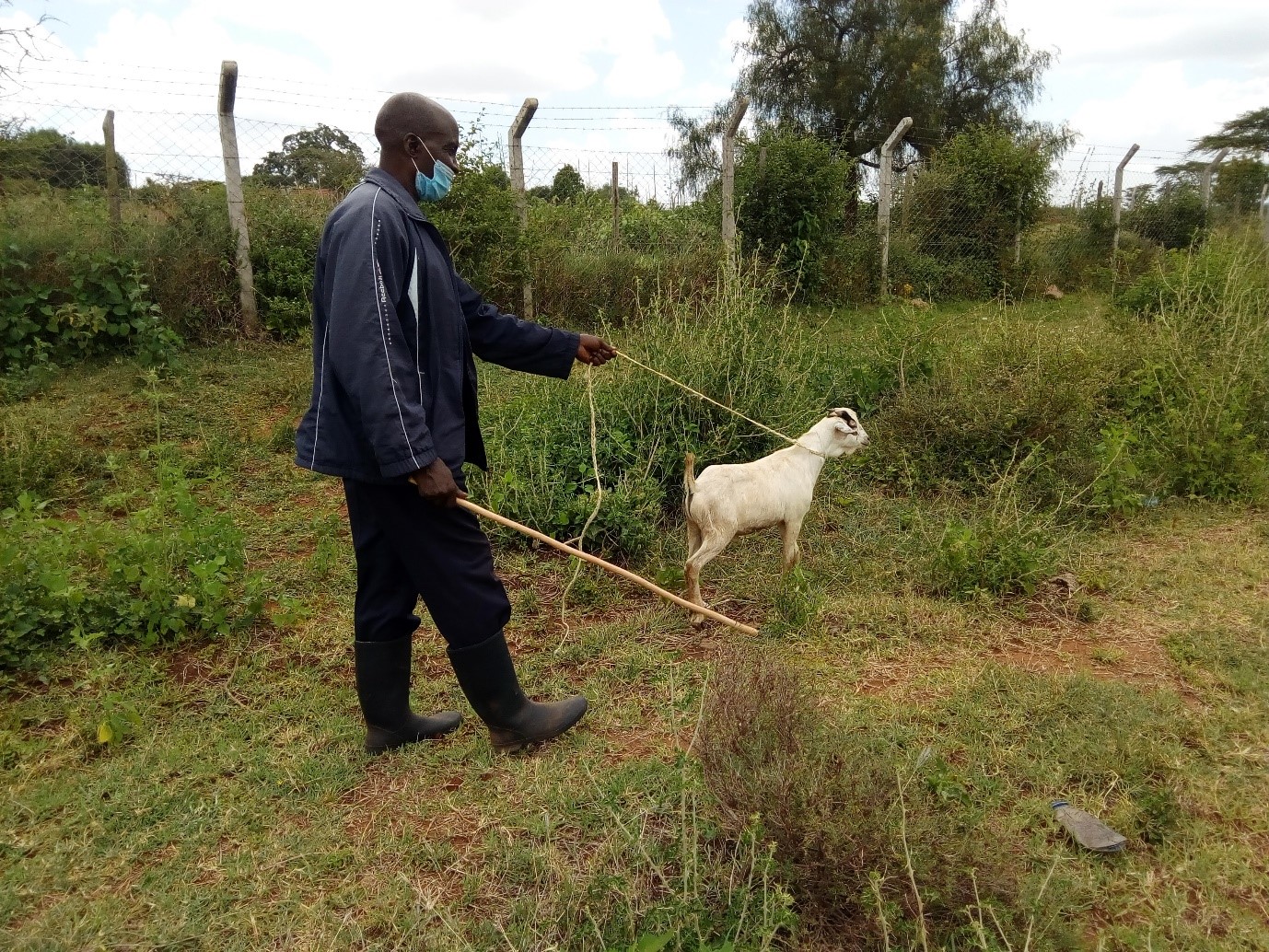
“My mbuzi moja journey began in 2018 when I gave out one of my goats. My goat was small, but it paid for the health cover of my children, my husband, and myself for one year without me paying the hospital. I can see it has helped me a lot because there was a day I was admitted to a private hospital and it covered me. Again my baby was admitted and was also covered,” says Linet.
The program, however, encounters sustainability challenges. Those who were enrolled in NHIF after their goats were auctioned in 2018 have never had another opportunity to do so. Some have defaulted. Linet picked up the pace and has been able to pay her Sh.500 per month.
“Before I got an NHIF card it was really tough because when anyone in my family became sick we could not go to the hospital instead stay at home. One year has ended and I am now paying myself through money, not a goat.” Says the mother of four.
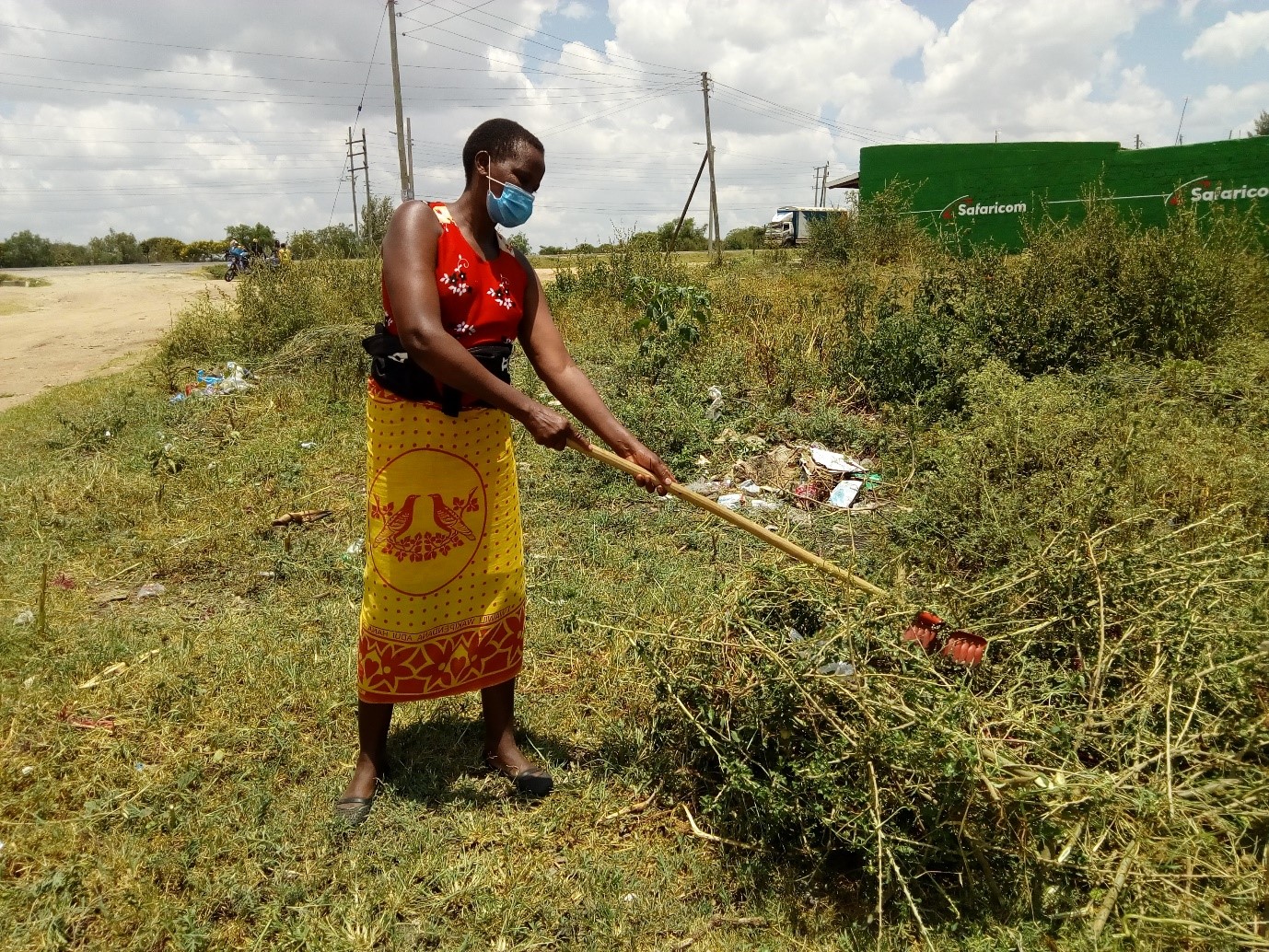
The story is, however, not the same for Erick Tatiek. The father of four was also enrolled in health insurance through mbuzi moja, afya bora initiative. His family was covered for that one year, but he has not paid any money since then. He says the goats he has cannot afford the annual NHIF subscription of KSh. 6, 000 and still pay for his children’s school fees.
“My card is there; I have never paid. It has even expired. I sell my goats so that my children can be in school because I have one in secondary school. That card made it easier because it helped even when I did not have money for the hospital,” he says.
Tatiek represents a section of the pastoralists in the area who are not able to afford the monthly NHIF payment without a goat auction.
“What I do every day is to pray to God that my children or wife or even myself do not get sick because it will force me to give much money. You know things like slight flu or cough is not that much higher, but when it is a serious condition that requires medical attention or one has to be admitted then I don’t want to imagine.” He adds.
Osotua village elder in Kajiado, Nicholas Moiko confirms that some of the beneficiaries have opted to default. He is one of the village elders in the area who mobilized pastoralists to take their goats for auctioning. He pleads with the County government of Kajiado to reconsider the continuity of the program.
“That project helped us a lot because even those who were not able to join NHIF joined because of mbuzi moja initiative. Of all those, there are some who have been defeated to pay so if they can be helped by eliminating Sh. 3, 000 it will help them.” He pleads.
According to the 2019 census, Kajiado county has a population of 1, 117, 840 spread in the North, East, Central, South, and West of the county.
The majority of these households relied on traditional herbs in times of sickness. It was not until 2018 when the county government came up with Mbuzi moja, Afya bora flagship program. As NHIF Branch Manager-Kajiado county, Peter Nyabuti Moenga explains.
“Access to medical care was much down in this community and what we did as NHIF was to accredit as many government facilities as possible and mission hospitals and facilities which are near where these people live. Besides that, they were relying on herbs but now they access health services in hospitals near them except when it’s a major issue when they have to follow referral protocols, “he reveals.
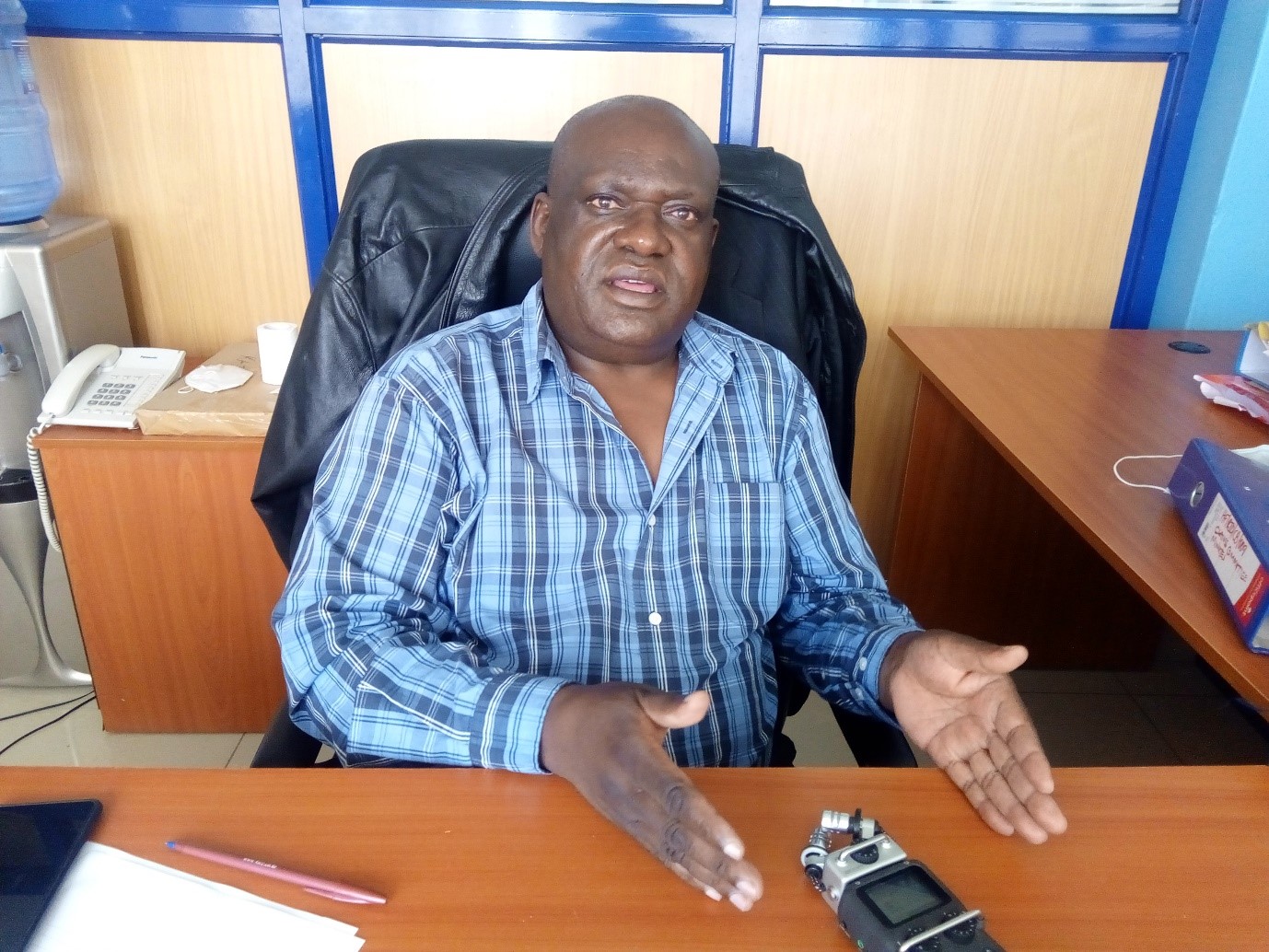
He confirms the initiative is between the county government and the residents of Kajiado County. The county government came on board and partnered with NHIF and other stakeholders to reach out to pastoralists who may not necessarily have money in cash. The fact that county leaders mobilized residents, most of them built more trust and found it easier to give out a goat than money. There was also a value addition through an auction.
NHIF data is scattered and so it is not possible to tell how many pastoralists were enrolled in the program through mbuzi moja, afya bora initiative. However, according to Mr. Moenga, of the 379, 000 total population of persons within the Kajiado central branch, 67, 000 households are already covered in the NHIF, an average of around 36%. This is an indication that three out of every ten households within Kajiado central alone are on health insurance coverage as of March 2021.
“We are introducing people into this program so that they can access health care and own the process and actually take care of their lives without depending on donors. For instance, this county has been given a total of 23,000 households for Universal Health Coverage, this mbuzi moja initiative will finally get into it,” he notes.
NHIF allows any defaulter to pay Sh.1, 500 fine to reactivate the NHIF card. The card then starts working after 60 days.
Efforts to get data from Kajiado county have proved difficult after over two months of an office visit, emails, and phone calls enquiring the same. However, according to information on the county’s website, the first goat auction in the area was held on September, 3rd 2018. The proceeds were to secure medical insurance under the NHIF cover for five thousand needy and vulnerable households within the county: https://www.kajiado.go.ke/media-centre/news/page/12/
Devolving health services in Kenya has created an opportunity for county bosses to come up with county-supported health programs. An example is Laikipia county where the governor uses technology to boost Universal Health Coverage. After he was elected in 2017, General Election, Governor Ndiritu Muriithi, negotiated with NHIF for residents who could not afford the monthly Sh. 500 at once to pay for their cover in small bits on a daily basis.
The mobile application, M-Jali App, allows its subscribers to pay for their health coverage for as little as Sh. 10 per day. As of January this year, 12, 500 households in Laikipia county whose population is 518, 560 were already in the subsidy County health program.

